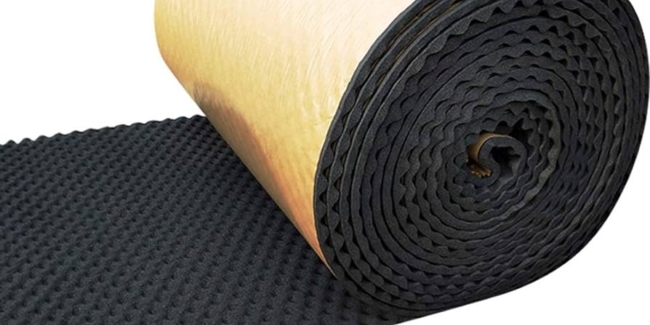Sound Deadening

Sound deadening plays a crucial role in creating quieter, more comfortable environments. Whether you're improving the acoustics of your home, office, studio, or vehicle, reducing unwanted noise can significantly enhance your quality of life. In this guide, we explore the concept of sound deadening, its benefits, and the most effective materials—such as sound deadening mats and insulation—for achieving optimal noise control.
Understanding Sound Deadening
Sound deadening—also known as acoustic treatment or soundproofing—involves limiting the transfer of sound from one space to another. This is achieved by using materials that absorb, dampen, or block sound waves, thereby helping to reduce noise pollution and improve the acoustics of a room, resulting in a more peaceful, productive, and private environment.
Product Enquiry
For information on Sound Deadening please complete the following quick enquiry or call us on +44(0)1384 252555.
Product Specification & Key Characteristics
- Colour: Anthracite
- Density: <90KG/M³
- Fire Propagation Index: <12
- Operating Temperature Range: -30°C to 100°C
- Thickness: Available from 1mm to 100mm (laminated options for increased thickness)
Sound Deadening Products
Selecting the right sound-deadening products is crucial for achieving effective noise control. Your selection should be based on the environment, type of noise, and desired outcome. Below are some of the most commonly used and effective options.
Acoustic Foam Panels:
Acoustic foam panels are widely used for their ability to absorb sound waves. These panels work by trapping sound energy within their open-cell foam structure, converting it into heat and preventing it from bouncing off hard surfaces.
Common Uses:
- Home cinemas
- Recording studios
- Offices and commercial spaces
Benefits:
- Lightweight and easy to install
- Available in a variety of sizes and colours
- Cost-effective and visually appealing
The Importance of Sound Deadening
Sound deadening delivers several significant benefits, making it essential in both residential and commercial settings:
- Enhanced Comfort – Minimises disruptive background noise, creating a calmer, more relaxing atmosphere.
- Increased Privacy – Helps contain sound within a room, preventing it from leaking into adjacent spaces.
- Improved Sleep – Reduces external noise for a better night’s sleep.
- Boosted Productivity – Quieter environments support better concentration and focus, especially in workspaces.
Why Use Sound Deadening Materials?
We live in an increasingly noisy world—traffic, construction, neighbours, and electronic devices all contribute to constant sound exposure. Sound-deadening materials offer an effective solution to manage and control this noise.
Key Benefits:
- Reduces Noise Pollution – Shields interiors from disruptive external noise.
- Health & Well-being – Minimises stress and supports better sleep and mental clarity.
- Acoustic Comfort – Enhances the sound environment, particularly in spaces that require concentration or relaxation.
Practical Tips for Sound Deadening
Here are some simple and effective ways to implement sound deadening in your space:
- Seal Cracks and Gaps: Use acoustic sealants or weatherstripping to block sound leaks around windows, doors, and skirting.
- Install Acoustic Panels: Foam- or fabric-wrapped panels reduce echo and reverb, making them ideal for studios, offices, and meeting rooms.
- Use Soundproof Curtains: Heavy curtains can significantly dampen noise from outside, especially when layered with blinds.
- Add Acoustic Insulation: Inserting insulation into walls, floors, and ceilings improves sound separation between rooms.
- Apply Acoustic Underlays: These underfloor materials are ideal for hard surfaces, such as laminate or tile, and help reduce footfall noise.
- Fit Door Sweeps: Simple additions to the base of doors prevent sound from escaping through gaps.
- Upgrade to Double Glazing: Dual-pane windows provide a solid barrier to block external noise and thermal transfer.
Advantages of Using Sound Deadening Materials
- Improved Audio Quality: Whether it’s a home theatre or music studio, sound deadening reduces distortions, echoes, and background noise for more precise sound.
- Versatile Applications: These materials are suitable for use across residential, commercial, and industrial settings—from homes and offices to restaurants and workshops.
- Cost-Effective Comfort: A modest investment in sound control can lead to substantial improvements in comfort, productivity, and overall well-being.
Sound-deadening materials are your first line of defence against unwanted noise. By investing in effective products and applying them strategically, you can transform your space into a haven of peace and acoustic comfort.
Please contact us using the form below or by calling us on +44(0)1384 252555.





















